Focus on Turkey
Creating a climate for impactful R&D
TÜBİTAK is a vital cog in Turkey’s wheel of innovation in which SMEs play a significant role and in which networks are central. This much was already evident in an earlier interview (Magazine 25) in 2016 with Mete Karaca, Scientific Programmes expert at TÜBİTAK. Three years on and how is the situation today?
To catch up on developments, we talk to Mehmet Aslan, who joined TÜBİTAK in 2005 after a little over a decade working in the Defence industry, focusing on telecommunications there. Having begun as an expert, Mehmet rose through the management ranks to become head of department at this specific arm dedicated to Technology and Innovation Support Programs (TEYDEB). Mehmet has responsibility for ensuring that the programmes and activities help realise industrial research and technological development, support for innovation as well as monitoring and developing collaboration between academia and industry. In this article, Mehmet elaborates on the vision, mission and practice of this TÜBİTAK arm and looks at how this fits together with the goals and projects of ITEA.
Support for R&D culture
“Our aim,” Mehmet begins, “is to contribute to our country’s private sector organisations so that we can create and maintain an internationally competitive structure in the development of research technology, technology management and innovation, and to be a well-known organisation whose practices are recognised throughout the world. To do that effectively, it is important for us to disseminate an R&D culture that enables the research, technology development and innovation activities of private sector organisations to be more competitive.” To this end, TEYDEB cooperates with the relevant sectors in various ways, for example, applying and developing risk-sharing support mechanisms to encourage private sector organisations to allocate resources to project-based research and technology development activities. Furthermore, it contributes to the establishment of national/ international cooperation and technology transfer mechanisms between industrial organisations, universities and research institutes as well as sets up measurement, evaluation and monitoring systems that enable the analysis of the socio-economic effects of support programmes.
ICT – enhancing competitiveness
In all of this, the software-intensive sector and the innovation it both needs and produces are essential ingredients. Mehmet: “Let me put ICT in perspective. In an economy of 766 billion US dollars last year, making Turkey among the world’s leading economies, 27.4 billion US dollars can be attributed to ICT-related services and products. The software sector alone is worth 3.8 billion US dollars, with exports valued at 775 million US dollars. Over the past ten years or so, we have witnessed in Turkey a transition from medium-to-low technology to mediumto- high technology. This could not have been possible without a strong ICT sector. In this context, there is a clear horizontal relationship with all other sectors ranging from chemistry and pharmaceutical to food-processing and machine-building. Our focus, then, is on developing and producing ICT that can enhance the capabilities and competitiveness of all these industries, both at home and abroad. This way we can boost our exports and the reputation of Turkish products and services on the international stage.”
Great potential
An important vehicle to achieve this target is open innovation and open source. “This will also help us to integrate Turkey as a global technology player,” Mehmet explains, “one that can operate as an effective partner in international networks. The European dimension is important here and programmes like ITEA have a vital role to play for us in this respect. After all, it is the EUREKA Cluster that specialises in software. There is so much potential in the emerging technologies and we want to be as much at the forefront of developments as we can. Which means getting our research and business communities involved where this can benefit our national priorities that target Artificial Intelligence, information security, robotics, big data and cloud computing, among others. To this end, we have set out 154 Calls, some 42 of which are in the areas mentioned. This is all part of the drive in the ambition Turkey has to produce smart technologies, smart solutions, smart companies – and gain a growing market share in these areas. A specific initiative is the establishment of a new Artificial Intelligence institute.” This institution will develop core technologies in the field of Artificial Intelligence and serve as a bridge by offering the scientific outputs produced at the academy to the service of public and private sectors.
In terms of supporting and promoting software innovation, annual investment is expected to reach 1 billion US dollars by 2023. “An important date for us,” Mehmet proudly points out, “since this year we will be celebrating the 100th anniversary of our Republic.” TEYDEB, as the department whose task it is to provide the relevant support mechanisms for software innovation in the private sector, assisted some 35,000 businesses between 2012 and 2018 to the tune of 1.5 billion US dollars, with 84% of that destined for SMEs in support of their R&D activities. A third of these are directly involved in ICT.
Shared goals
“ITEA is also becoming a growing and important component of this support and promotion,” Mehmet says. “We are both on the same page when it comes to the goals of the two organisations. And, of course, ITEA also gives Turkish firms a platform to establish contacts and collaborate with European partners. The benefits of this cannot be underestimated. In fact, we see it as a critical instrument in our ambitions. The collaboration between SMEs, large companies and research institutions in various European and other countries enhance and reinforce our capabilities and competitiveness. So, essentially, this collaborative environment provided by ITEA acts as a support mechanism for our national priorities. We realise that in the global market, we have to collaborate in order to compete. That’s a simple fact of life. Ultimately, it’s about the transfer of critical technology knowledge into results and, in turn, the transfer of those results into business impact. Which means that there are two things at play here – technology and entrepreneurship. For the latter we also provide support to our companies but through contact and exchange in the ITEA Community, our companies can learn and so improve their competence in doing business internationally and successfully.”
Other articles
Use the arrows to view more articles

Editorial
By Jan Jonker

Country focus: Turkey
Creating a climate for impactful R&D

Vice-chairman's blog
by Philippe Letellier
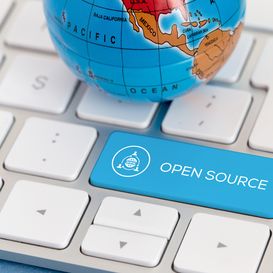
ITEA Success story: OPEES
Open Platform for the Engineering of Embedded Systems
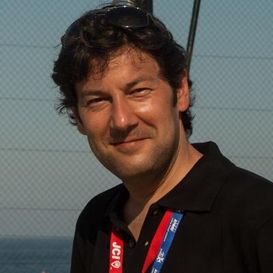
Community Talk with Özgün Algin
Creating innovation, results and exploitation with friends
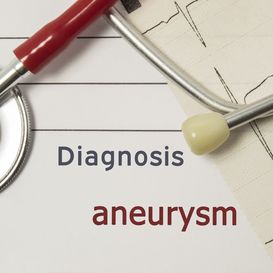
End user happiness BENEFIT
Prevent rupture of a brain artery

ITEA Success story: MODRIO
Digital twins for the safe and efficient design and operation of cyber-physical systems
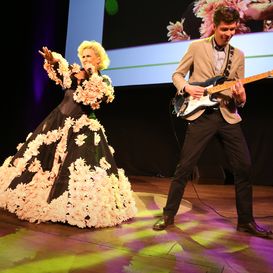
New ITEA Office Director: Jan Jonker
Right time, right place, right person

SME in the spotlight: Yazzoom
From downtime to uptime with real-time anomaly detection
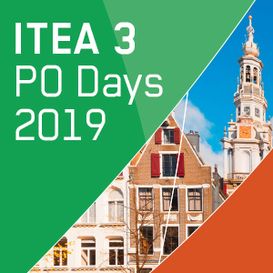
ITEA PO Days 2019
'Mix between speed dating and a hackaton'
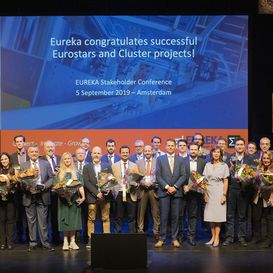
Eureka Stakeholder Conference 2019
Creating ecosystems for innovation

